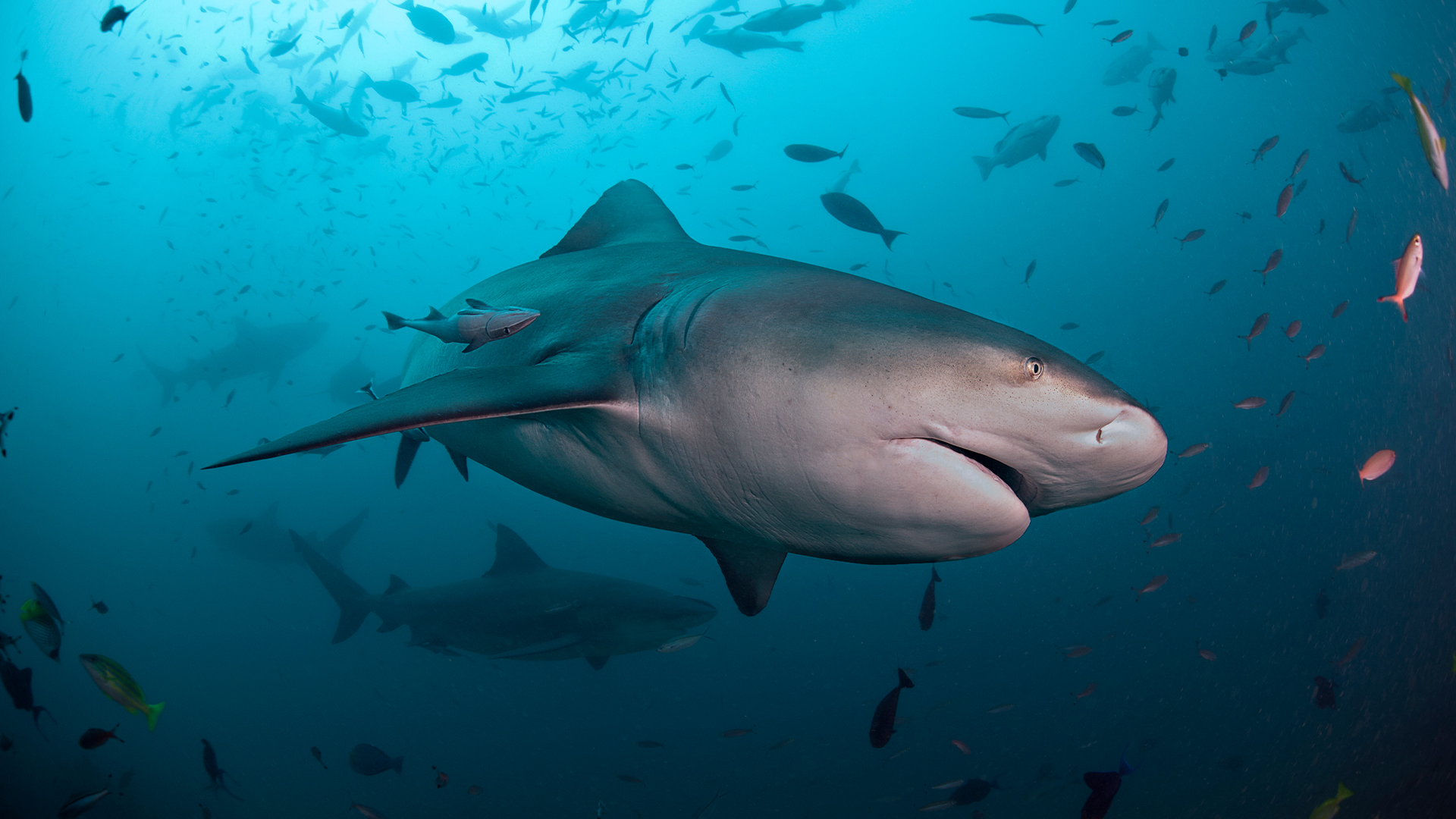
Baby bull sharks are showing up way more often in the waters off Alabama, researchers found.
In a study published March 14 in Scientific Reports, researchers found that the number of bull sharks (Carcharhinus leucas) caught per hour increased five-fold between 2003 and 2020. All the bull sharks captured and released were juveniles, likely because the baby sharks use these sheltered waters to grow and feed.
While bull sharks are among the most aggressive of shark species, beachgoers don't need to worry that the increasing presence of these stout-bodied fish will lead to more shark bites, lead author Lindsay Mullins, a fisheries scientist at Mississippi State University, told Live Science. Despite the misconception that sharks hunt humans, "they're really not interested in you."
However, they may prey on some of the animals that get caught in fishing gear, so fishers may notice more of these juvenile bull sharks feeding on their catch, Mullins said.
Bull sharks thrive in fresh, brackish and saltwater and can grow to be 11.5 feet (3.5 meters) long. They live in coastal, tropical and subtropical environments, "so they are used to warm waters," Mullins said.
In the new study, scientists reviewed data from the Alabama Department of Conservation and Natural Resources' gillnet survey of the coastline along Mobile Bay. They found 440 bull sharks captured over the study period.
During that same period, average sea surface water temperatures in Mobile Bay increased from 72.1 to 73.4 degrees (22.3 to 23 degrees Celsius). With ocean temperatures increasing around the world, Mullins sees it as a good thing that bull sharks are able to thrive in warming waters.
The presence of sharks in Mobile Bay also shows that the ecosystem is healthy. "Hooray for resilient baby bull sharks," she said.
But although the sharks are currently thriving, this might not always be the case as temperatures continue to rise. "It's definitely not impossible that there is an upper threshold in terms of temperature tolerance that we just have not seen yet," Mullins said.
Mobile Bay's bull shark population is relatively healthy, but globally, bull sharks are vulnerable to extinction, according to the International Union for Conservation of Nature. And all shark species are threatened by fishing and climate change.







